research center
What your research did to me
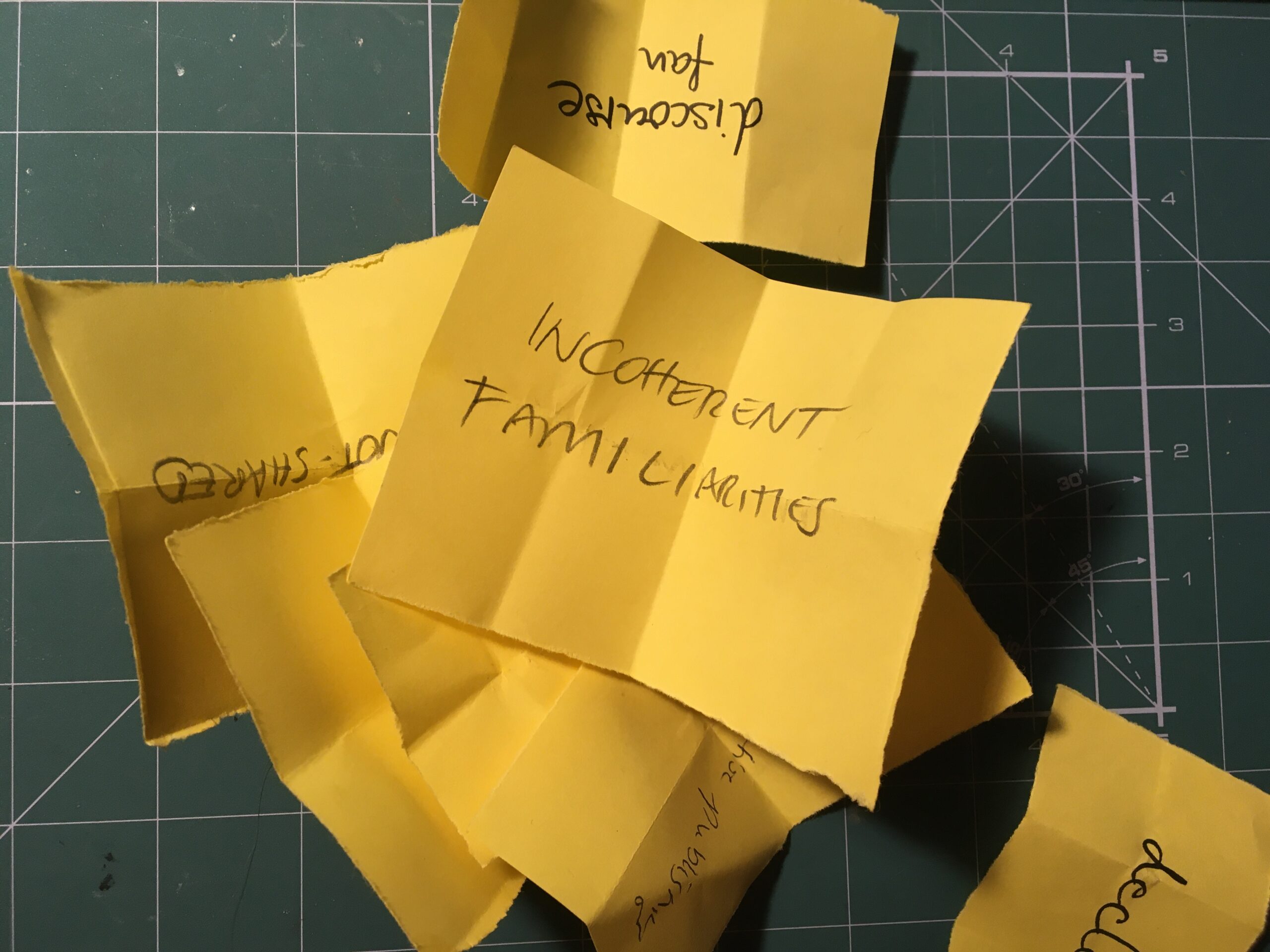
Welcome in De Markten, Friday, 11th of June 2021.
18-22h
Subscribe for attendance. Or join us online. Details will follow.
Breg Horemans, Davide Tidoni, Esteban Donoso, Lili M. Rampre and Pia Louwerens
will read, perform, discuss:
a book as a prop for future performance, a poster that unfolds into a speculative discussion board game, a timed articulation in an archive that reiterates its own traces, a set of interviews that binds four generations of activism, a performative research method that paves the way for academic writing, and a collective online score that narrates how research interests were influenced by each others presence.
Read more..research center
Breg Horemans, Davide Tidoni, Esteban Donoso, Lili M. Rampre, Pia Louwerens, Vladimir Miller RESEARCH CENTER CYCLE 2 BLOCK I and In-Between Block
1 January-31 July 2020
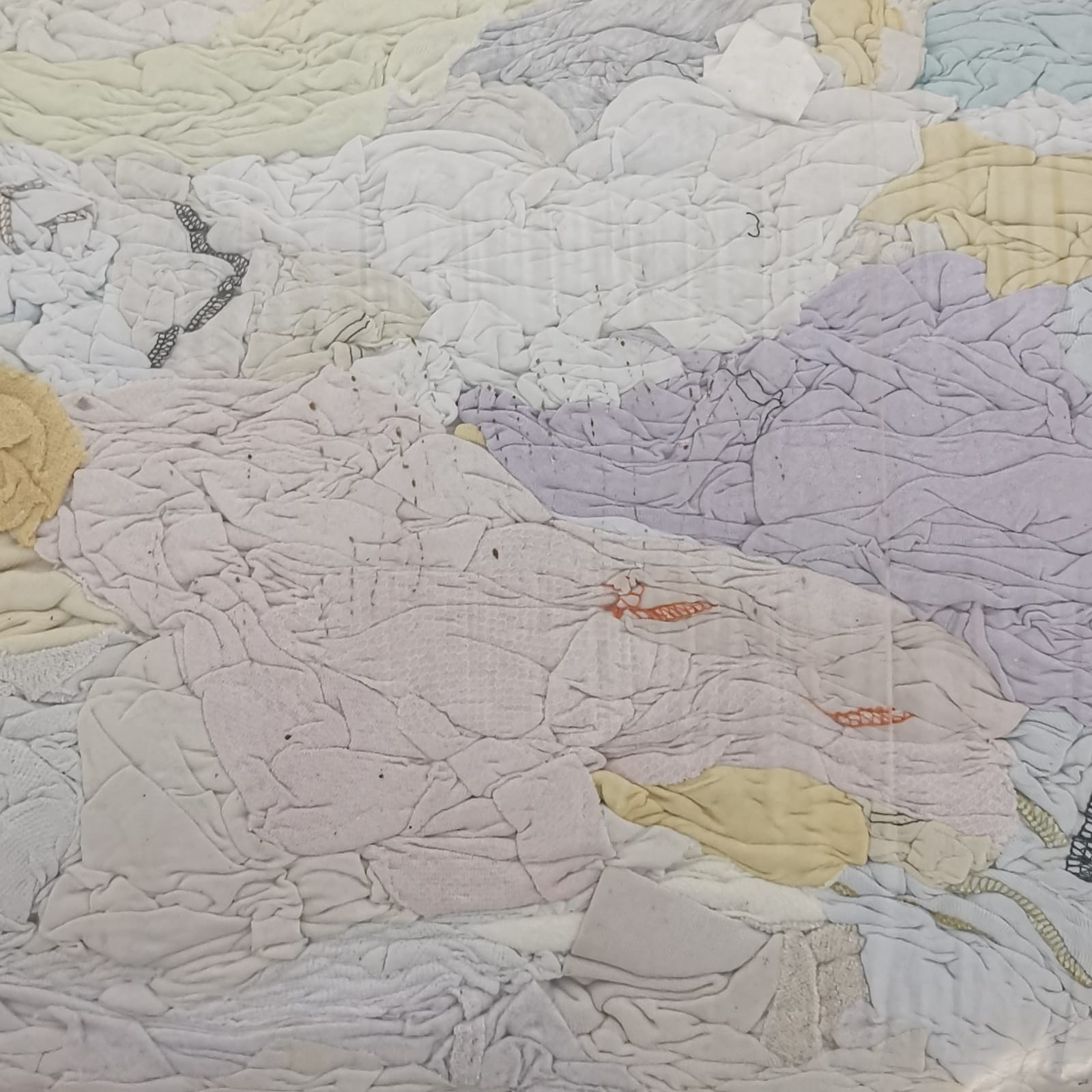
research center, workshop
Esteban Donoso Re-
13-14 July 2020 / ZSenne Art Lab
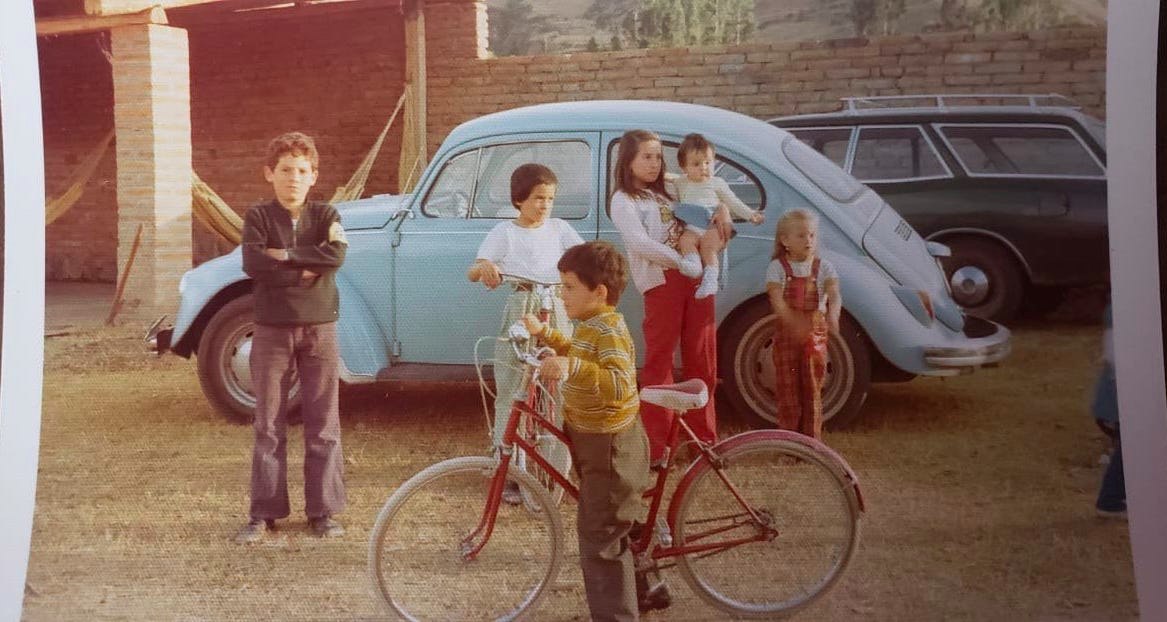
Read more..
research center, workshop
Davide Tidoni Spatial sound to movement
14-14 July 2020 / ZSenne Art Lab
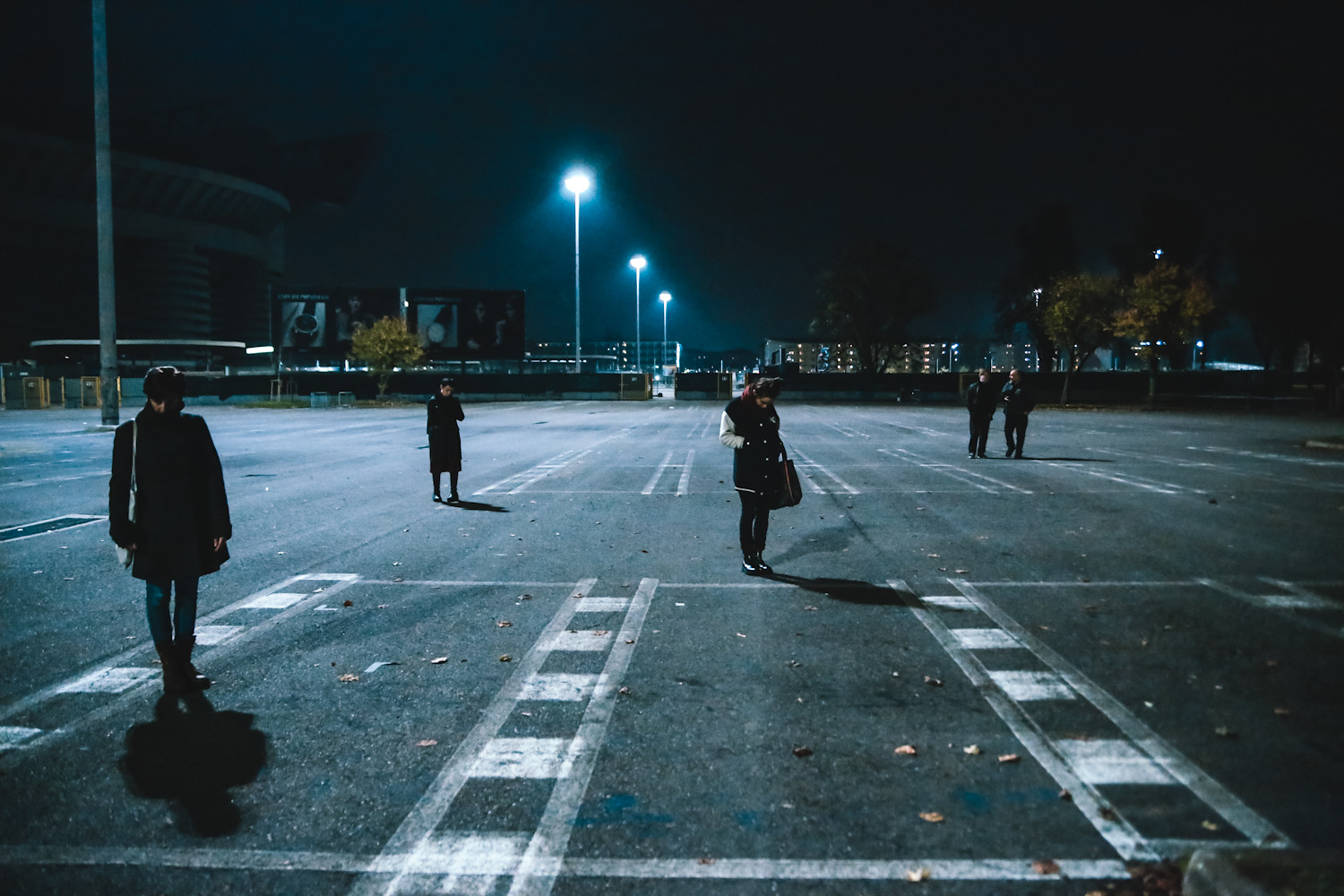
How sound-space perception and spatial listening can be used as a tool for developing movement and creating performance works?
What knowledge/approach/way-of-doing do spatial listening and sound-space perception afford and how that can inform movement and performance work? How sound space awareness can turn or be translated into ways of moving, performing, and choreographing?
Can we think of specific ways to develop/approach movement and performance which are led by the ear-situated-in-space? What are the differences compared to a more eye-determined approach to movement and performance? What are the intersections and common aspects? And eventually, what are the consequences of this approach on other aspects of performance work such as set design, sound design and the positioning of the sound sources, dramaturgy, costumes, and the role/position of the audience?
Read more..research center, workshop
Pia Louwerens Writing subtext
15 July 2020 / ZSenne Art Lab
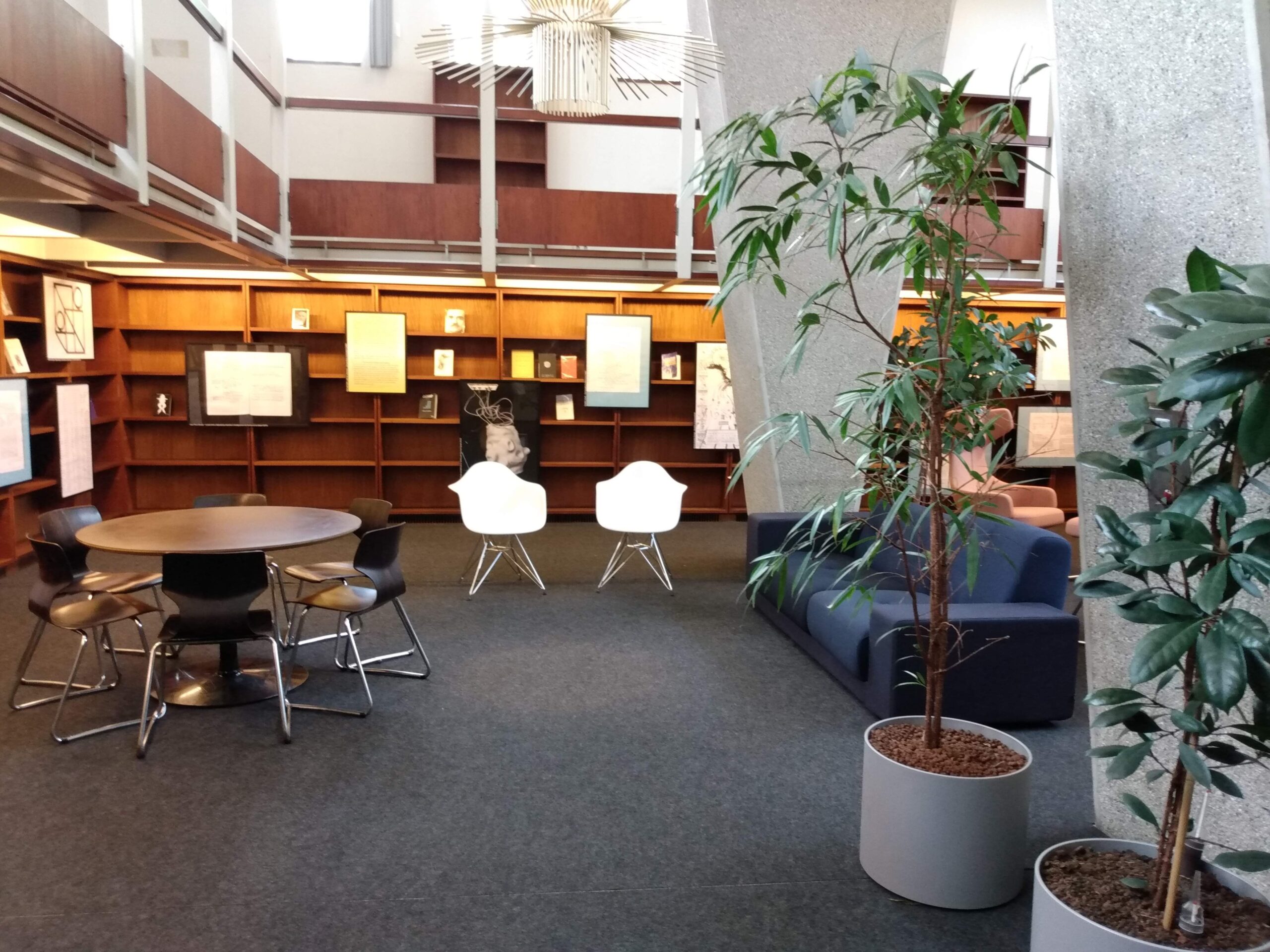
During this workshop Pia Louwerens will test scattered yet corroborating ideas and exercises linked to her research, grouped into two sessions. The first part of the workshop will revolve around the notion of being “embedded” and ways of becoming embedded on the one hand, and on the other hand the workshop as a superstructure, an exoskeleton, which adapts itself to its participants. Would it be possible to rewrite the workshop during the event itself, and what kind of structure could serve this soft workshop? For the second part of the workshop Louwerens will introduce new elements; attempts to evoke events which occured during her research trajectory in collaboration with several institutions in the Netherlands. We will become a loosely organized speaking-reading-writing-machine to collectively document these instances and provide them with an embedded subtext.
Read more..research center, workshop
Breg Horemans What do you depend on, where you are?
15-17 July 2020 / ZSenne Art Lab
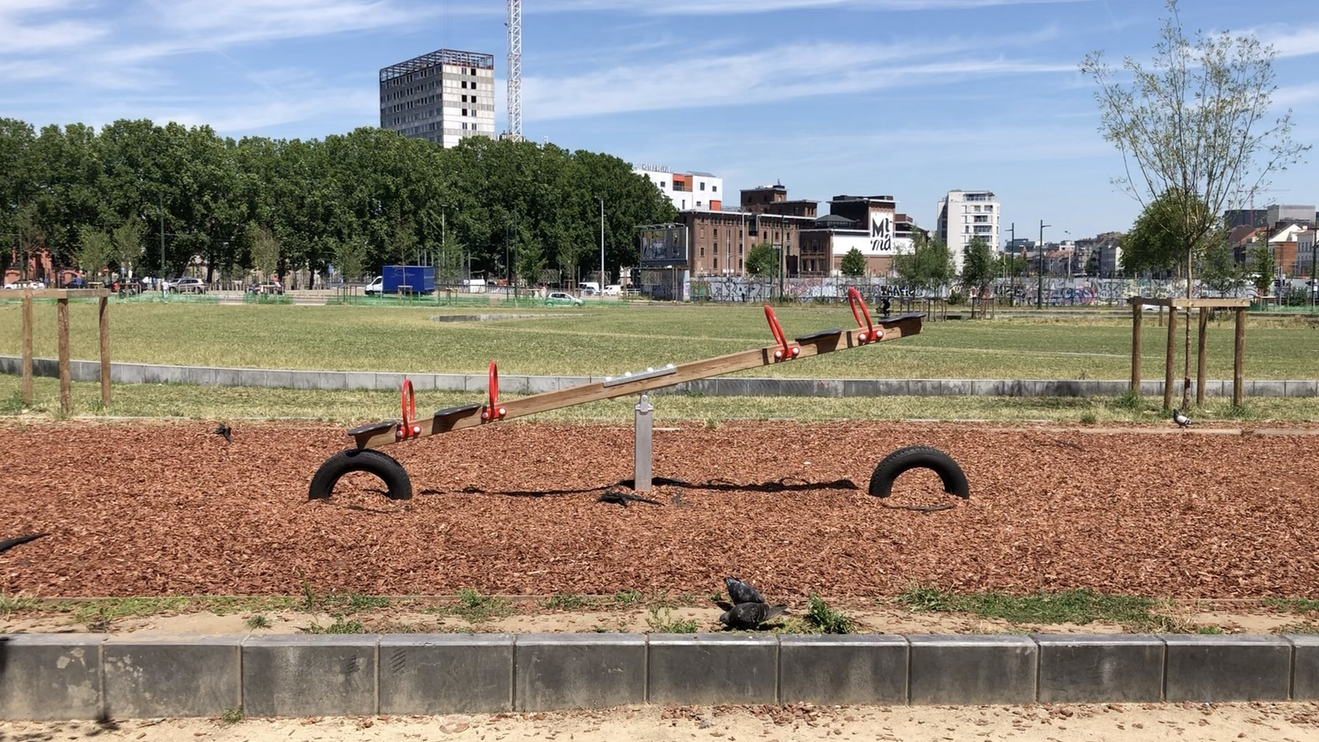
How can we share the performative potential of public space to explore ‘mutual vulnerability’? We invite you to think physically during a series of ‘staged encounters’ in the wider environment of Zsenne Art Lab, between July 15 and 17.
Every encounter offers a space to negotiate proximity with a stranger, addressing the possibility for an intra-active (Barad) relationship. These encounters take shape as silent walks for two people on July 15, 16 and 17 (mornings, between 9 and 10 am). The endpoint of the walk is Zsenne Art Lab.
Through this practice of physical thinking, we aim to configure a layered understanding of the relation between self- and social identity within the urban environment. We explore how the environment plays a role in the construction of an ‘environmental identity’ (Clayton). On Friday July 17th at 14pm, a public discussion will take place for the participants of the silent walks and external guests to share thoughts on the question: ‘how do our practices contribute to the construction of an environmental identity’?
These activities are embedded in the long term research project HALL33, by TAAT. Between May and November we continue organizing ‘staged encounters’ as a form of social activism in Brussels (BE), Dundee (UK), Riga (LV) and Athens (GR). How vulnerable do we want to be towards strangers in a ‘socially distant’ society?
Read more..reading session, research center
Lili Rampre Reading Session
16 July 2020 / ZSenne Art Lab
aaa
Lili Rampre’s recent developments within RC involved repurposing works of popular culture and their most prominent characteristics of an epic story to help re-narrativise group and community concerns. Lili’s long term interest in (re)imagining an audience, especially within performing arts, found a strong resonance with current examples of collective action carried out by various fan groups. In Zsenne reading session, Lili is inviting you to delve into some of the texts on citizenship through fandom as a vehicle and examples of such performances. The reading will start by addressing the proposed questions:
- how conflations between activism and fan self-aware agency can re-shape our understanding of the audience,
- potentials for public participation, civic action,
- how new civic practices of engaged audience members are defining joyous activism and with your participation move on to opening new ones, concerning your particular practices and angles, approaches to the topic.
This should not be misunderstood as an extension of the already well developed sociology and anthropology of fandom, but rather as the critical reappraisal that emergent large popular assemblages of self-identifying communities are an under-utilized and under-recognized potentiality for “performance” proper.
Read more..research center
Breg Horemans, Davide Tidoni, Esteban Donoso, Lili M. Rampre, Pia Louwerens, Nicolas Galeazzi Hosting
1 September-12 December 2020 / a.pass
Research Center Cycle 2 Block II
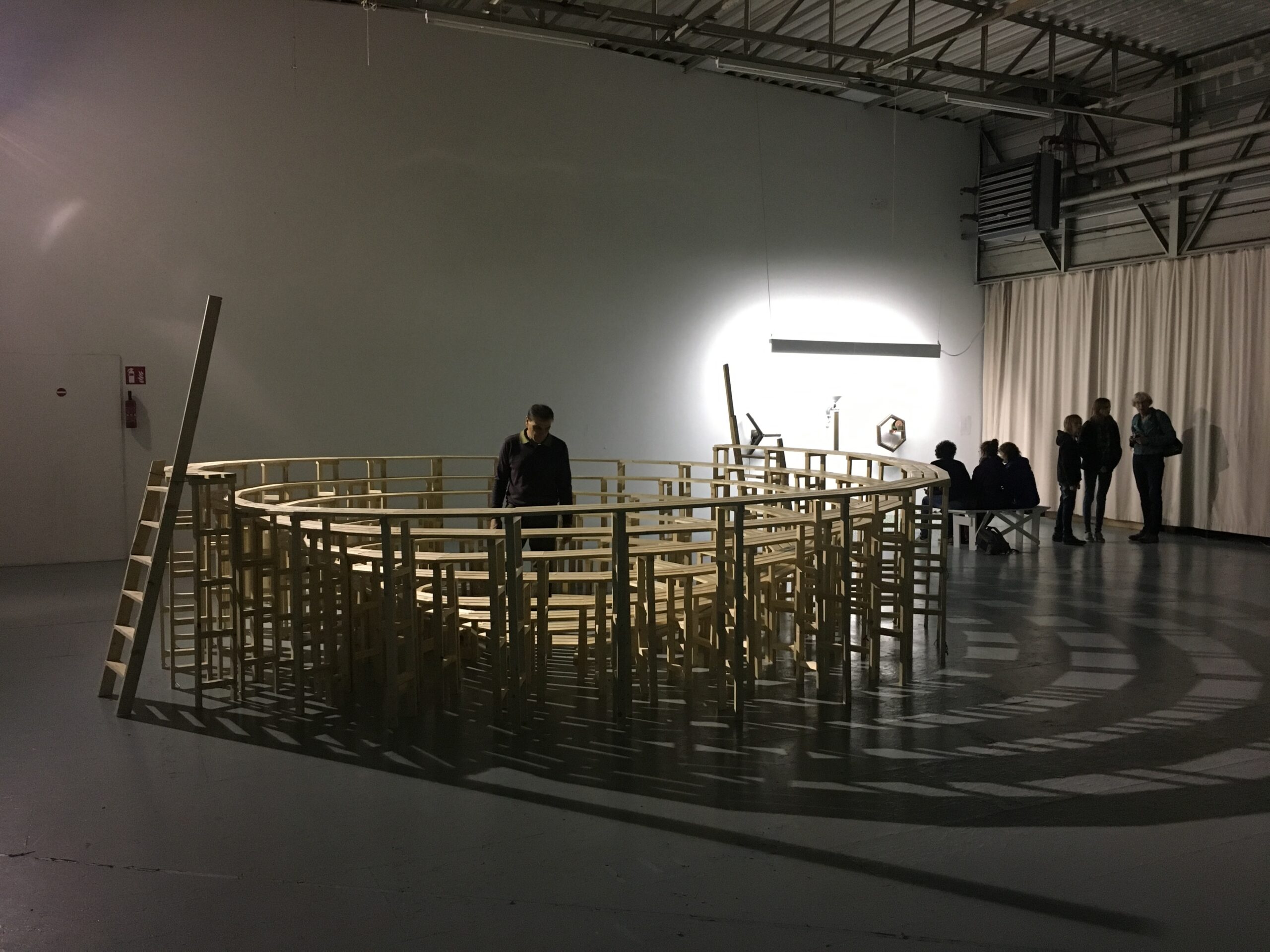
Read more..
postgraduate program
THE ASYLUM (FOR DESIRING BODIES)
6 January-31 March 2021
Block 2021 I curated by Elle/Elke Van Campenhout/The Monastery
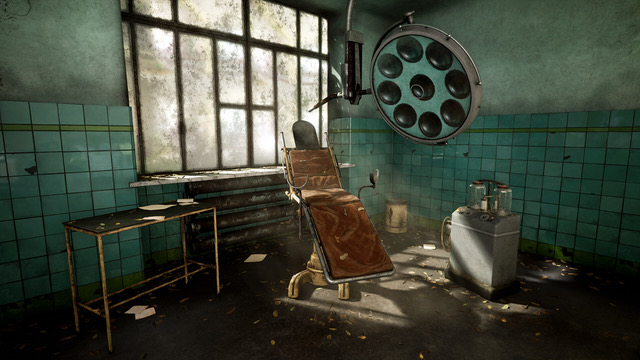
An asylum is a place of refuge. Of taking leave of the world for a limited period of time. It is a place out of the world. Where rules function differently. Where people without a place of belonging are temporarily ‘parked’ in order to mend their ways. It is a place for the ones that don’t fit the grid: mental patients, refugees, people suffering from ailments of all kinds. Desiring bodies, in search of papers, legitimacy, acceptance, health, reconnection to the outside world.
In that sense it is also a place of hope, a world-in-a-world where difference can live and be accepted. Maybe even celebrated. Where the norms are temporarily suspended, and common sense rules no longer apply. In this gap, in this suspension, wild thoughts can go unchecked. Dubious behaviour flies under the radar.
Read more..end presentation, performative publishing, postgraduate program
I feel like leaving the room
28-29 January 2021 / online: https://ifeellikeleavingtheroom.online
End Presentations 2021 I
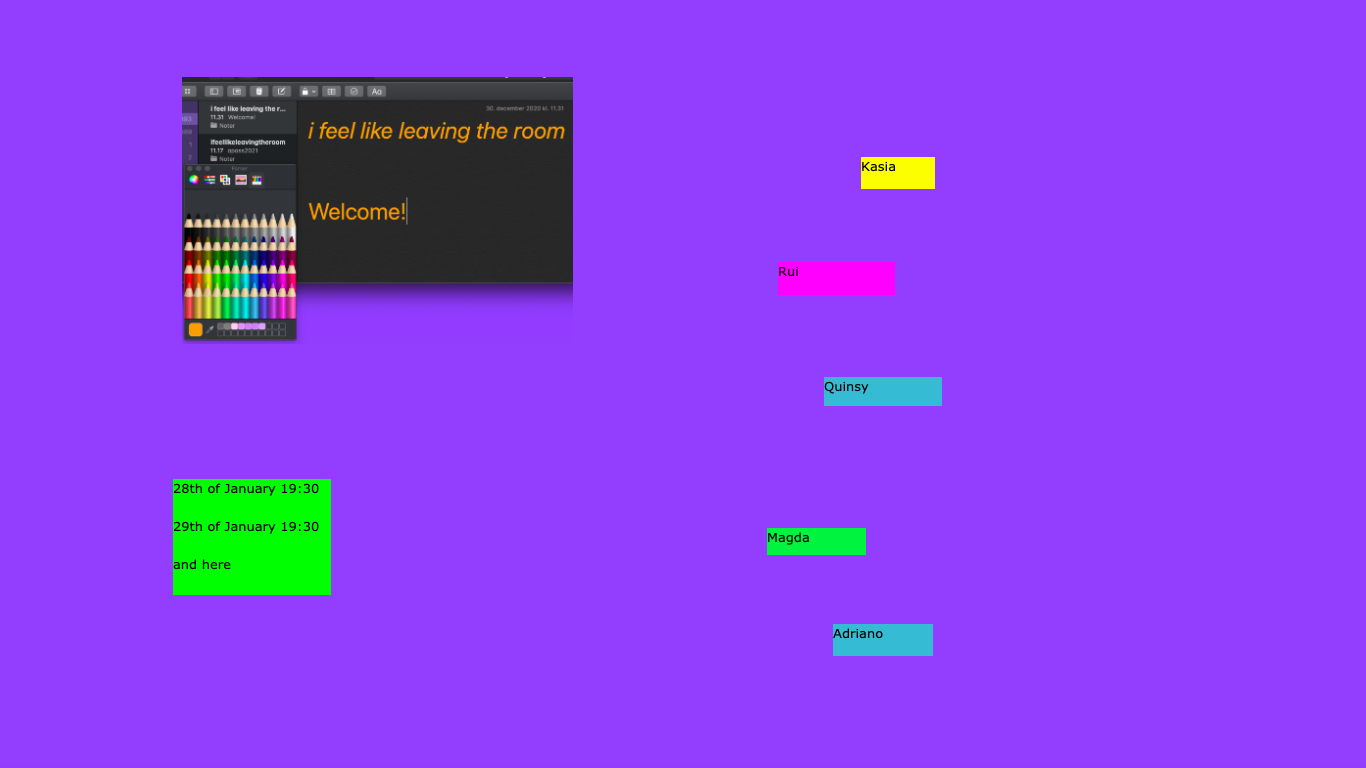
a.pass welcomes you the:
29th January 2021 – 19:30 – TV show -Collective presentation – 2h30 hours
Join Zoom Meeting
is finished….
Check out : https://ifeellikeleavingtheroom.online/
I feel like leaving the room is the title of the postgraduate End Presentations of researchers Rui Calvo (film maker), Quinsy Gario (poet, visual and performance artist), Adriano Wilfert Jensen (choreographer), Magdalena Ptasznik, (choreographer) and Kasia Tórz (dramaturg and writer).
After attending to the extended one year program at a.pass, the five researchers finish their trajectory with an online presentation of a collective website. Covid 19 and the restrictions of the confinement have framed the space of these public presentations in an uncanny entanglement between the private and the public. I feel like leaving the room is more than anything the (liminal) desire to come together. The form of this coming together takes shape around an ad-hoc TV show that will be streamed the 29th of January from the a.pass studio as an attempt to still intertwine thoughts and experiences.
In the beginning, the space for this public moment was imagined as a living room, as a place where the borders of the informal and the formal are blurred. Not as a real physical living-room but by using the conditions implied in such well known private (though public) environment, with the aim of engaging the audience in a different way. What happens when research becomes public as a workshop, a power point presentation, a film, a dance or a walk that steers from such a hangout surrounding?
As a consequence of the pandemic that determines the conditions of coming together – the living room became the desired ‘leaving room’ – a place, as well, between the private and the public but enclosing the publicness in separated private spaces with only one window – a window to the virtual. The artists researchers addressed that liminal space in various ways in accordance with the medium they mainly work with. Inevitably, the translations that will take place, address the current situation of the confinement, while trying to reach out to the world.
Read more..performative publishing, research center
Breg Horemans, Davide Tidoni, Esteban Donoso, Lili M. Rampre and Pia Louwerens WHAT YOUR RESEARCH DID TO ME
30 euro - annex + 2 books + 1 game
10 June 2021
research center associates Cycle II
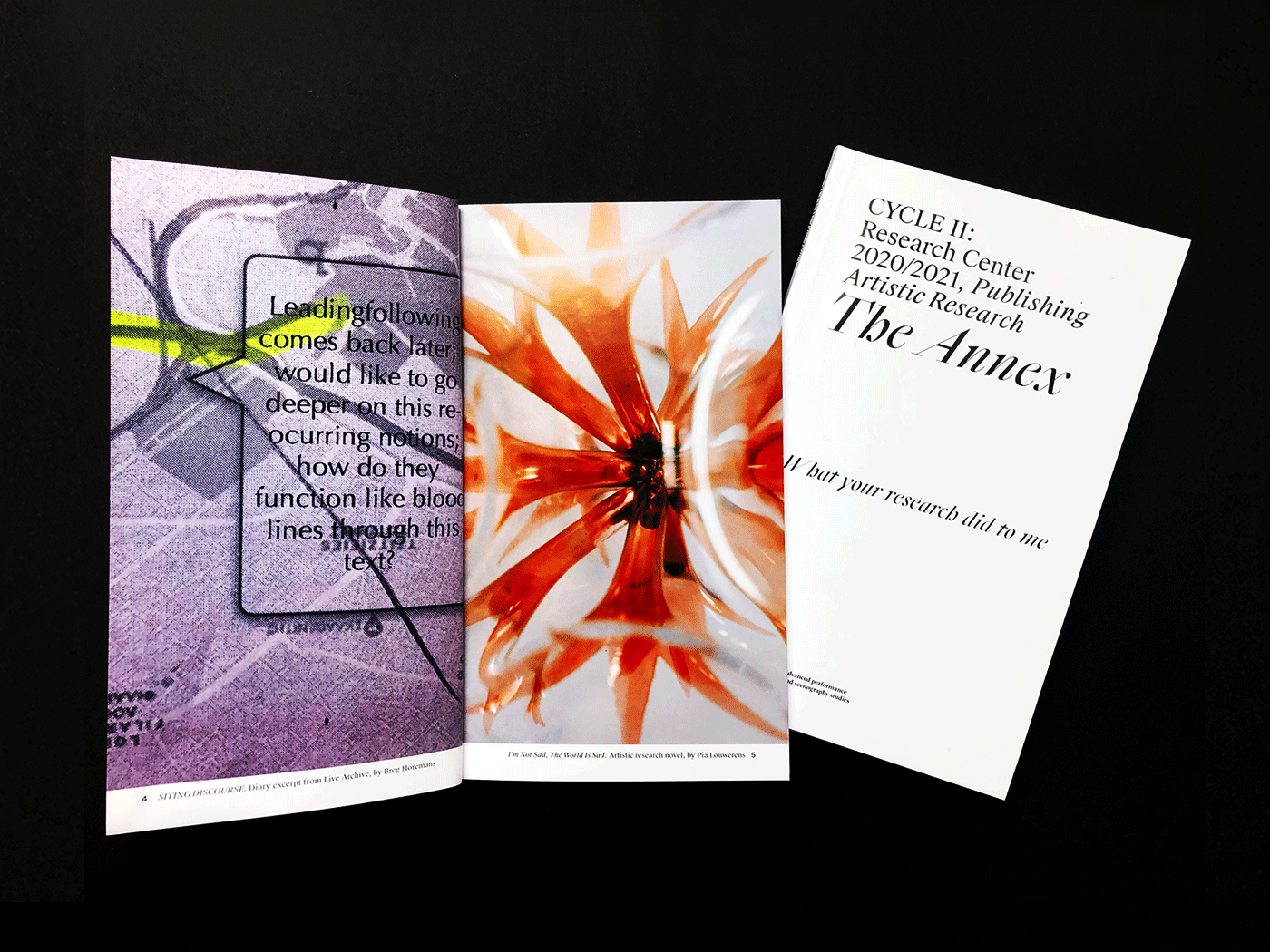
Read more..
Order this publication.
workshop
Sara Manente, Babak Afrassiabi and Nasrin Tabatabai, Kate Briggs Printer’s devils
26 June-7 July 2023 / a.pass & rile*
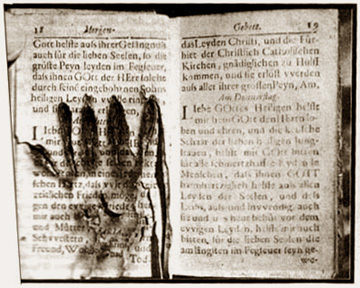
One publishes to find comrades! So says André Breton. The last block of a.pass ends with a focus on publishing, and the myriad of relations implied in committing something to print. Publishing is rarely something that concludes a confined process of solitary thought. It is a social process that — abstractly and manifestly — involves collaboration along the way: sometimes with fellow interlocutors, sometimes with an editor or designer at the other end of the table, sometimes with abstract ideas of what readership might entail, sometimes in dialogue with ordinary processes of living with, sometimes as a script with future enactment in mind, and most probably a bit of all of those at once. Rather than aiming for a book or for printed matter as a finite goal, we will take publishing as a pretext to build relationships that last over time. How can a publication be set up as an ongoing social gesture, a space for the continued production of meaning and reverberance?
Read more..performative publishing, postgraduate program, workshop
Sara Manente and Jaime Llopis MAGAZINES
26-27 June 2023 / a.pass

The 2 days workshop starts from looking into the possibilities given by the magazine as a format for artistic publications.
If any publication implies a multiplicity of relations and functions, depending on different expertise in the editing and printing process, a magazine entails as well a variety of authors and sources, a diversity of literary genres, and a large spectrum of relationships between the writer/performer and the reader/spectator. A magazine can also alter and play with the tensions and the hierarchies between the serious and the banal. All these features would overflow the centralized and isolated role of the editor.
Read more..performative publishing, postgraduate program, workshop
Nasrin Tabatabai and Babak Afrassiabi Stage so near so far
29-30 June 2023 / a.pass
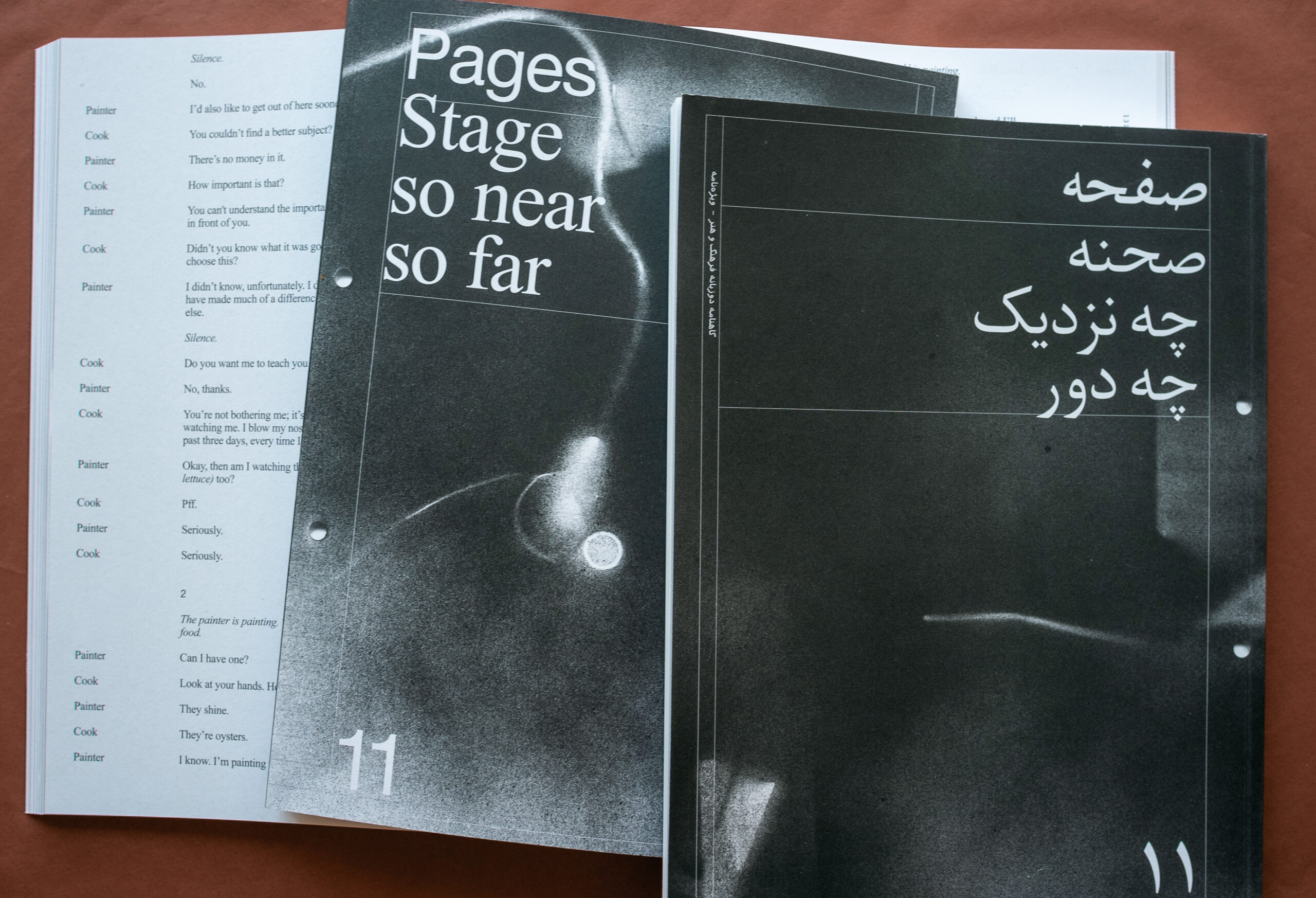
Stage so near so far is a two-day workshop following the newly published issue of Pages and explores forms of reading based on the printed texts in the magazine.
The new issue consists entirely of plays and performance texts by Iranian women writers living in or outside Iran. Whether based on actual experience, fictional, or drawn from archives, these texts deal in one way or another with the question of the stage. They produce a contested space of performance that is inevitably linked to the performer’s body, whose thresholds are stretched and contracted into potentially new forms of staging.
Read more..performative publishing, postgraduate program, workshop
Kate Briggs LONG-ING
5-6 July 2023 / a.pass
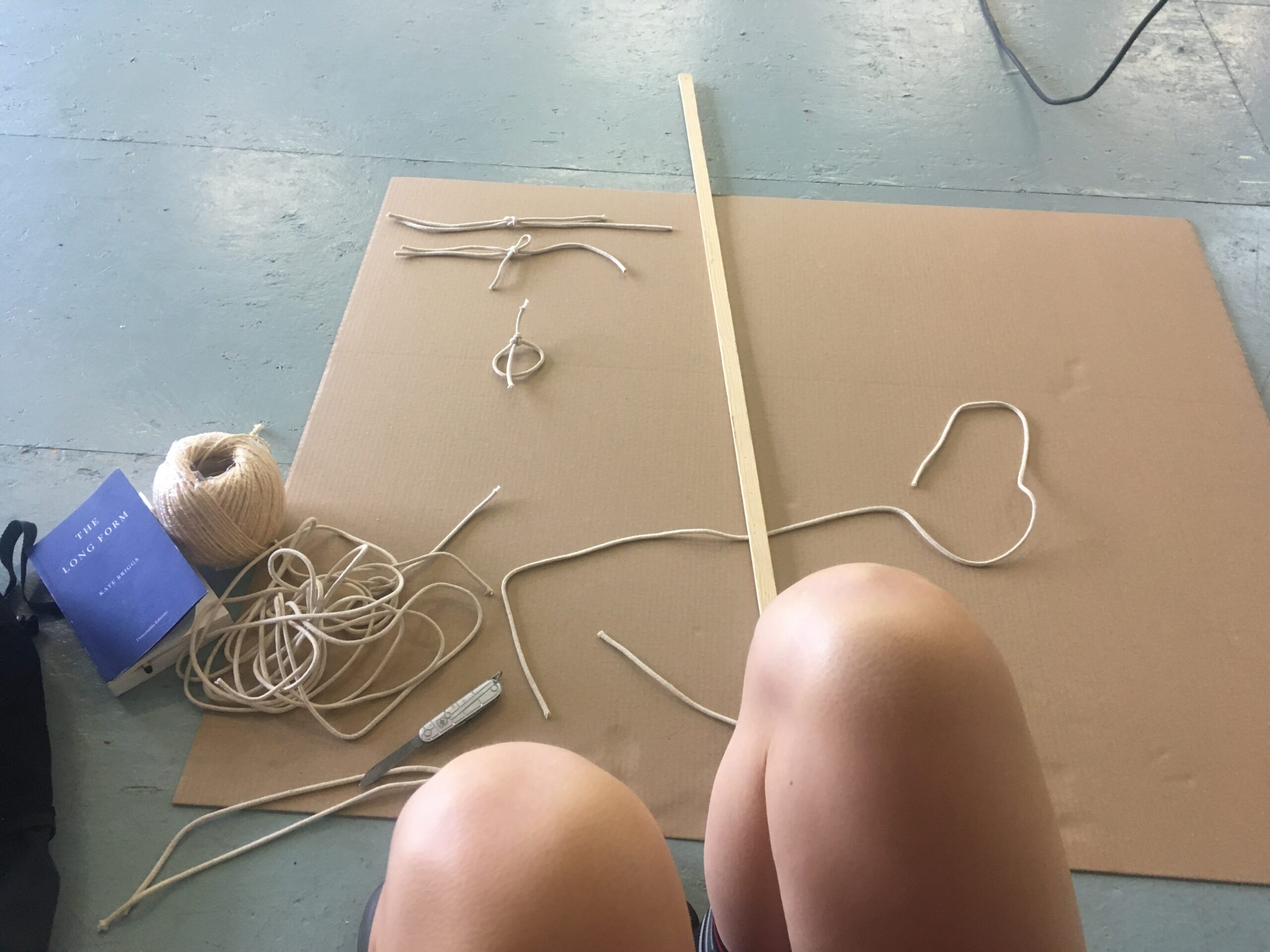
The purpose of this workshop is to explore together (through talk, writing, scoring and movement) some key compositional questions. The particular focus is on length, experienced as sequence and duration, and how to achieve it. Long-ing: how to make things that carry on? (If only for a short while?) Once initiated, how and when to make them stop? Our work will involve looking closely at transitions: the links or breaks between the smaller parts of a composition, as well as beginnings and endings, rises and falls in energy and interest. It will draw on the processes operational in our most immediate surrounds (the different durations of the bodies, objects and forces composing our work-space) and use these as both constraints and materials. It will also involve bringing in certain powerful shapes and positions — social as well as aesthetic shapes such as the circle, the horseshoe or the line –, thinking about the work they do, then testing how to move from the one to other (from the clearing to the path, the scene to the summary). ‘I wish it were longer,’ it is written somewhere in Laurence Sterne’s Tristram Shandy, ‘for I like it truly.’ In the end, the project of long-ing might come down to this: to matters of feeling, liking or not liking, tensions producing curiosities or failing to, and we will consider these vital questions, too.
Read more..